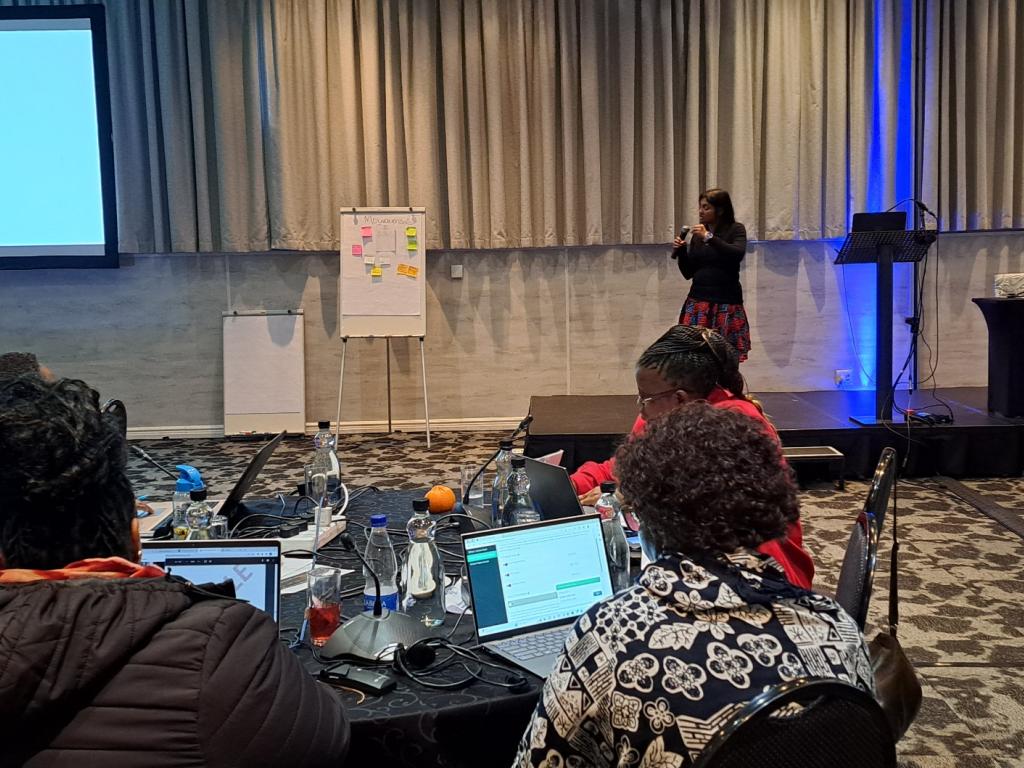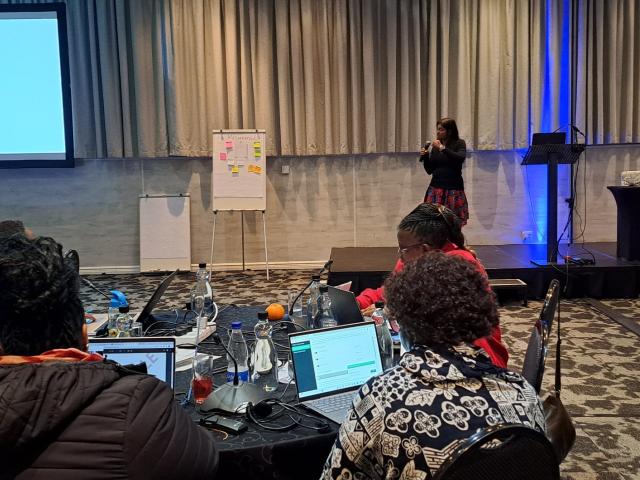App development for DTP immunisation programme design

Development of innovative tools for gathering country-specific evidence to support implementation of new health strategies is critical, particularly in resource constrained Low- to Middle-Income Countries (LMICs). The World Health Organization (WHO) has made recommendations on the use of booster doses for diphtheria, tetanus and pertussis (DTP) combined vaccines. Following from this, the Modelling and Simulations Hub, Africa (MASHA) developed a web-based tool for introduction of DTP booster doses into existing immunisation programs. The digital platform is designed to explore the epidemiological and economic impacts of different introduction strategies.
The software development effort was led by MASHA’s Jared Norman and Retselisitsoe Monyake who describe the process of developing the digital platform.
The initial meeting for the project was held in early 2022. The MASHA team drafted the initial model and its parameters from literature and consultations with a technical expert group consisting of partners from the Ugandan National Expanded Program for Immunization (UNEPI), the US Centre for Disease Control and Prevention (CDC), and the African Field Epidemiology Network (AFENET). Each disease model was validated by an external expert to inform model structure and sign-off on parameters before integration. Deliberations amongst partners were extensive and proactive to ensure that the model best represents the desired outcomes.
In an earlier 2023 meeting, collaborators made recommendations to improve the application's usability, particularly the user interface and the interpretation of model findings. For instance, they recommend the use of country-specific data for model validation and calibration to tailor projections to unique contexts. The technical expert for tetanus advised that the antenatal care dataset provided was not an accurate proxy for maternal vaccination against tetanus toxoid in Uganda and recommended the use of WHO data instead.
MASHA’s strategy of modelling for policy guidance differs from traditional approaches to modelling. "Before COVID, we would see modelling happening in a way that was not operationalizable, so quite theoretical. So, with the app development that MASHA focuses on, the idea is that we can work with policy makers in a way that makes sense to them, and we can be a bit clearer about the science communication aspect, while also enabling people to explore the results of the modelling", Jared noted. By collaborating with various stakeholders, MASHA ensures that the results generated are accessible and informs practical implementation of health strategies.
Three separate models depict the transmission of diphtheria, tetanus, and pertussis transitions, and rates. Each model is run with the same number of DTP vaccine doses and are further separated for the outcomes of each disease. The digital platform simplifies the actual model: users set up their country’s profile to date, then calibrate to data up to that date. The user then designs various scenarios for immunisation roll out, such as targeting school children or pregnant women with a specific vaccine combination, after which they can simulate implementation scenarios. Finally, the evaluation of the cost implications of the booster strategies, and examination of the cost-effectiveness of the scenario are considered.
The app was built primarily in R shiny—a free open-source R package used to develop web applications. The choice of technology reflects MASHA’s philosophy of science communication, producing outputs that are reproducible and accessible on a non-commercial licence.

Whilst still in development, the model will ultimately be used by National Immunization Technical Advisory Groups (NITAGs) to consult and advise government immunisation programmes on their implementation strategies. A coding background or understanding of mathematical modelling is not required to use the application, and users will be able to describe the current vaccination strategy, and design booster strategies to meet immunisation targets. A demo version of the app was presented by the Director of MASHA Prof Sheetal Silal, at the 2nd Annual Vaccinology Course for NITAGs that took place at the University of Cape Town from 3-7 July 2023. Although the platform is already being used in Uganda, booster introduction scenarios may be adjusted to different contexts to support cost-effective introduction of DTP booster vaccines. This further demonstrates the role policy-relevant modelling plays in aiding decision making in resource constrained settings.
